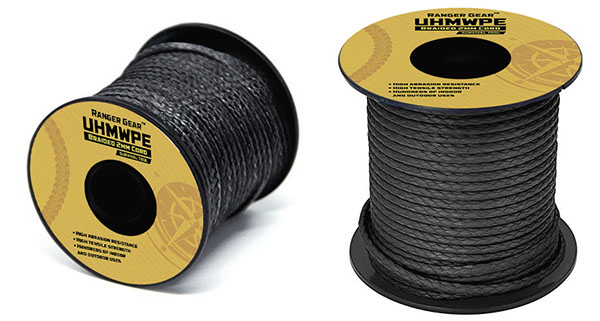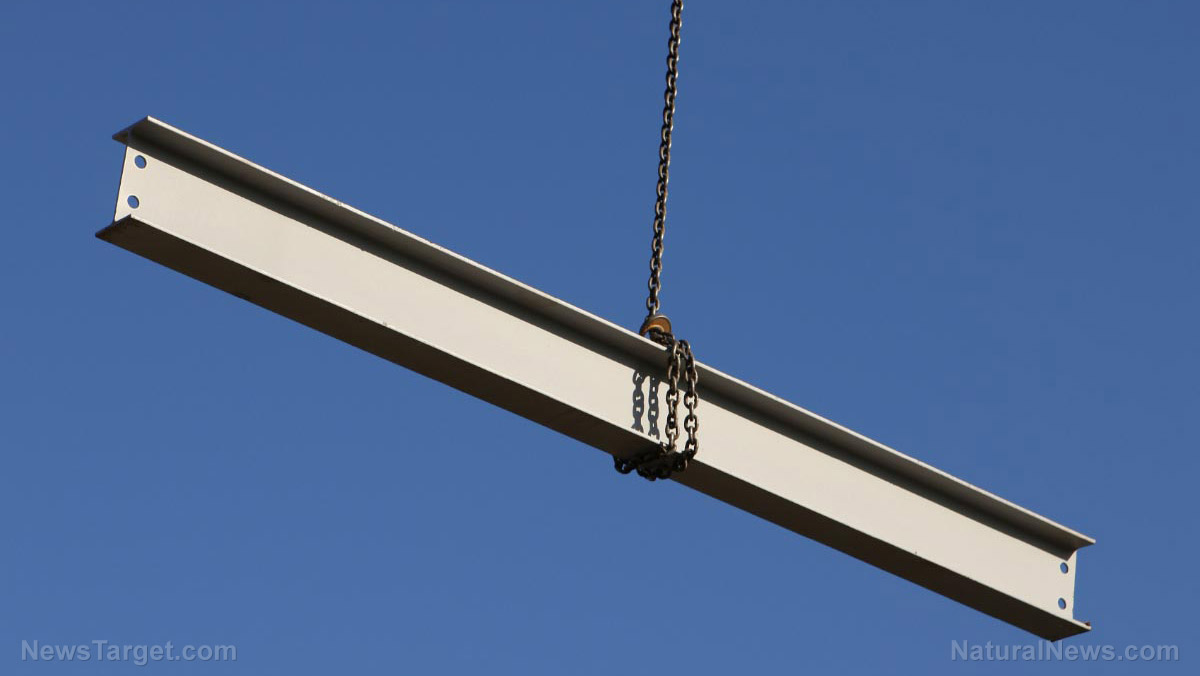UHMWPE braided cord: An amazing survival tool when SHTF
09/28/2022 / By Olivia Cook

In survival situations, cordage that is extremely strong, durable, flexible (holds knots well), water-resistant (keeps strength when wet), resistant to rot (mold, mildew and UV), resistant to chemicals, relatively affordable, wear-resistant, has insulating properties, resists abrasion/friction and reliable is a must-have preparedness item and should be at the top of your list for go-to survival tools.
A study published in the Journal of Engineered Fibers Fabrics has found that ultra-high molecular weight polyethylene (UHMWPE) fiber rope exhibits outstanding strength-to-weight balance due to its molecular orientation, high crystallinity and low density. It is an extremely high-strength, lightweight, heated rope with high abrasion resistance and low stretchability.
In terms of properties, UHMWPE braided cord is better compared to popular survival ropes like the Kevlar rope, paracord (short for parachute cord), polyester rope, polypropylene rope, nylon rope, Manila rope and sisal rope. (Related: 6 Types of rope and why you need them for survival.)
Paracord is perhaps the most popular all-around, general-use survival cordage carried by preppers in their everyday carry (EDC). You can get a ton of paracord for a small amount of money. But here are some reasons why UHMWPE braided cord is a better choice.
Overall strength
UHMWPE braided cord is made of high-tensile strength, high-modulus long chains of overlapping polyethylene fibers. Due to its bonded production style and scientifically enhanced fibers, the strength of a UHMWPE braided survival cord is more than 15 times stronger than high-quality steel wire rope. This construction means that compression and bending fatigue are considerably less than synthetic and steel equivalents.
Safer than steel wire
UHMWPE braided cord is much safer to use, with less recoil force than a steel rope. When a steel rope breaks, the metal wire unravels quickly, leaving razor-sharp edges whipping around unpredictably. On the other hand, the recoil is much less when a UHMWPE rope breaks. If it breaks, the rope will display a linear, predictable recoil.
Resistance to abrasion and friction
The self-lubricating fibers of UHMWPE rope make it durable, distinctly softer and smoother than Kevlar rope, making it easy to handle (although this means it does not hold knots particularly well).
Forty percent stronger than Aramid yarns (a class of heat-resistant and strong synthetic fiber), UHMWPE yarns have high abrasion resistance even under pressure despite their smoothness. They are still at least 15 times more resistant to abrasion than carbon steel. It also has a very low coefficient of friction, meaning it is well-suited for uses that involve motion and sliding.
UHMWPE rope exhibits resistance to cracking, cuts or tears and abrasion. A flame retardant can be added so that it can be used where there is a source of fire.
Moisture, chemical and ultraviolet resistance
UHMWPE rope is made of a waterproof material that will not be weighed down by liquid absorption. This near-zero moisture absorption makes it ideal for use in humid or wet conditions. UHMWPE rope also has significantly better ultraviolet resistance than aramid yarn, prolonging the life of your rope, and tends to be a better choice for outdoor applications.
Depending on the grade, UHMWPE usually has a molecular mass between 3.5 and 7.5 atomic mass unit (amu), which is quite high.
A high molecular weight increases chemical resistance. It is highly resistant to most alkalis, acids, organic solvents, degreasing agents and electrolytic attacks.
Durability and resistance to deformation and creep fatigue
UHMWPE braided cord has a flex life performance of 100, which allows it to maintain its strength and fit over a much longer period of time compared to Kevlar rope, which has a flex life performance of only 12.
Creep fatigue happens when a rope elongates in high temperatures, which can lead to catastrophic failure of the line. When creep occurs, this gradual elongation of fibers can create a more limited lifespan. UHMWPE braided cord has less creep than other fibers or rope under constant tension loads.
Weight, density and storability
UHMWPE rope has low specific gravity, meaning it floats in water. This high-performance rope is significantly stronger than steel yet only one-eight of the weight of comparable steel wires.
In comparison to steel rope or other polyester ropes, UHMWPE ropes are smaller in volume due to the smaller quantities needed to achieve the same outcome. This makes them easier to store.
Uses of UHMWPE braided cord
UHMWPE braided cord is extremely versatile. It can be used for the following:
- Cranes and pulley systems where heavy lifting is required
- Towing heavy objects, especially vehicles
- Cross or tow straps to secure large pieces of baggage to the top of your bug-out vehicle
- Winching, both onshore and offshore
- Wire rope replacement – it is safer, stronger and more affordable
- Conveyor lines
- Snares and booby traps for hunting larger game
- Fishing lines
- Spear lines on spear guns
- Safe mooring of rafts, boats and canoes
- Makeshift or DIY hammock
- Operations that require regular harsh cleaning in a wet environment
There are a number of options for line and cord, and each will have its pros and cons in different survival situations.
While your investment is high for UHMWPE braided cord, it is a safer alternative to wire rope and offers better value for your money. Its service life is two to three times that of the other popular survival ropes as long as it is properly maintained, and there’s nothing to prevent you from combining it with other types of cordage.
Watch this video to learn how to prevent cordage from becoming a tangled mess in your EDC gear.
This video is from the Daily Videos channel on Brighteon.com.
More related stories:
Prepping essentials: 12 survival uses for a paracord.
Survival 101: 15 essentials for your truck’s everyday carry kit.
Survival essentials: 20 items to take with you when you go off grid.
Sources include:
Submit a correction >>
Tagged Under:
braided cord, bug out, cordage, Gear, homesteading, off grid, paracord, preparedness, prepper, prepping, rope, SHTF, survival, survival gear, UHMWPE
This article may contain statements that reflect the opinion of the author
Get independent news alerts on natural cures, food lab tests, cannabis medicine, science, robotics, drones, privacy and more from NewsTarget.com
Get independent news alerts on natural cures, food lab tests, cannabis medicine, science, robotics, drones, privacy and more from NewsTarget.com
RECENT NEWS & ARTICLES
SHTF.News is a fact-based public education website published by SHTF News Features, LLC.
All content copyright © 2018 by SHTF News Features, LLC.
Contact Us with Tips or Corrections
All trademarks, registered trademarks and servicemarks mentioned on this site are the property of their respective owners.





















